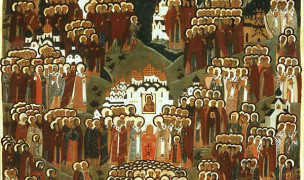 40 Terms
40 TermsHome > Terms > English (EN) > jazz
jazz
Style of African American music that started in the South, particularly in New Orleans, around the end of the nineteenth century Syncopated and polyrhythmic, jazz’s early influences can be found in nineteenth-century vernacular forms: ragtime, spirituals, stringbands, Dixieland. Jazz bands used European symphonic instruments, but emphasized the brass sections. Bands often had more than one trumpet or saxophone player as well as a string section, piano and rhythm sections. As jazz spread throughout the country and into Europe by the 1920s, bandleaders and composers such as Louis Armstrong became prominent. Bands became larger in the 1930s, and the complex music became simplified by white big bands such as those led by Glenn Miller and Jimmy Dorsey.
In the 1940s, swing music ended and bop emerged as the predominant form, originating from jazz clubs of New York City, NY. A new generation of musicians emerged such as Charlie Parker (saxophone), Dizzy Gillespie (trumpet) and Thelonious Monk (piano) who left the big bands to start their own smaller, more experimental ensembles. The great jazz vocalists of the era—Ella Fitzgerald, Sarah Vaughn, Betty Carter—took bop’s vigorous rhythms and harmonic changes into singing styles and took up what came to be called scat singing: improvisations based on—but not necessarily loyal to—a recurring melody that mimicked instruments in their phrasing.
In the 1950s, jazz splintered off into a few styles. On the West Coast, a “cool” school emerged with practitioners such as Dave Brubeck, Gerry Mulligan and Chet Baker. In the late 1950s, a fusion between jazz and classical music emerged, exemplified by the Modern Jazz Quartet. Hard bop or soul jazz also emerged as a style that used blues themes in the music—this was performed by Art Blakey’s Jazz Messengers. Also in the 1950s, an avant-garde developed that was less concerned with improvisations built around the melody and harmonic structure, but were investigating sound textures. These innovators were Miles Davis on the trumpet, Ornette Coleman on the saxophone, trumpet and violin and John Coltrane on the saxophone.
In the 1960s, jazz music was influenced by the rise of protest in the African American community Saxophonist Charlie Shepp, for example, played angry plaintive music that rejected the standard theme-improvisational solos-theme format of small ensembles. This music, however, never developed great commercial appeal. Instead, fusion music of the 1970s that moved to the more standard rhythms of rock ’n’ roll and utilized electronic instruments reached a mass audience.
By the end of the century neo-classicist virtuosos such as Wynton Marsalis emerged as key players in the world of jazz, bringing back the melodycentered musics of the 1920s and 1930s. Marsalis is currently artistic director of the jazz program at Lincoln Center of Performing Arts in New York City, signaling that jazz is now considered an officially recognized form of music, alongside European-based classical music in its rigor and history.
- Part of Speech: noun
- Synonym(s):
- Blossary:
- Industry/Domain: Culture
- Category: American culture
- Company: Routledge
- Product:
- Acronym-Abbreviation:
Other Languages:
Member comments
Terms in the News
Billy Morgan
Sports; Snowboarding
The British snowboarder Billy Morgan has landed the sport’s first ever 1800 quadruple cork. The rider, who represented Great Britain in the 2014 Winter Olympics in Sochi, was in Livigno, Italy, when he achieved the man-oeuvre. It involves flipping four times, while body also spins with five complete rotations on a sideways or downward-facing axis. The trick ...
Marzieh Afkham
Broadcasting & receiving; News
Marzieh Afkham, who is the country’s first foreign ministry spokeswoman, will head a mission in east Asia, the state news agency reported. It is not clear to which country she will be posted as her appointment has yet to be announced officially. Afkham will only be the second female ambassador Iran has had. Under the last shah’s rule, Mehrangiz Dolatshahi, a ...
Weekly Packet
Language; Online services; Slang; Internet
Weekly Packet or "Paquete Semanal" as it is known in Cuba is a term used by Cubans to describe the information that is gathered from the internet outside of Cuba and saved onto hard drives to be transported into Cuba itself. Weekly Packets are then sold to Cuban's without internet access, allowing them to obtain information just days - and sometimes hours - after it ...
Asian Infrastructure Investment Bank (AIIB)
Banking; Investment banking
The Asian Infrastructure Investment Bank (AIIB) is an international financial institution established to address the need in Asia for infrastructure development. According to the Asian Development Bank, Asia needs $800 billion each year for roads, ports, power plants or other infrastructure projects before 2020. Originally proposed by China in 2013, a signing ...
Spartan
Online services; Internet
Spartan is the codename given to the new Microsoft Windows 10 browser that will replace Microsoft Windows Internet Explorer. The new browser will be built from the ground up and disregard any code from the IE platform. It has a new rendering engine that is built to be compatible with how the web is written today. The name Spartan is named after the ...
Featured Terms
dumbbell
The dumbbell, a type of free weight, is a piece of equipment used in weight training. It can be used individually or in pairs, with one in each hand.
Contributor
Featured blossaries
Browers Terms By Category
- Nightclub terms(32)
- Bar terms(31)
Bars & nightclubs(63) Terms
- Human evolution(1831)
- Evolution(562)
- General archaeology(328)
- Archaeology tools(11)
- Artifacts(8)
- Dig sites(4)
Archaeology(2749) Terms
- ISO standards(4935)
- Six Sigma(581)
- Capability maturity model integration(216)
Quality management(5732) Terms
- Pesticides(2181)
- Organic fertilizers(10)
- Potassium fertilizers(8)
- Herbicides(5)
- Fungicides(1)
- Insecticides(1)




